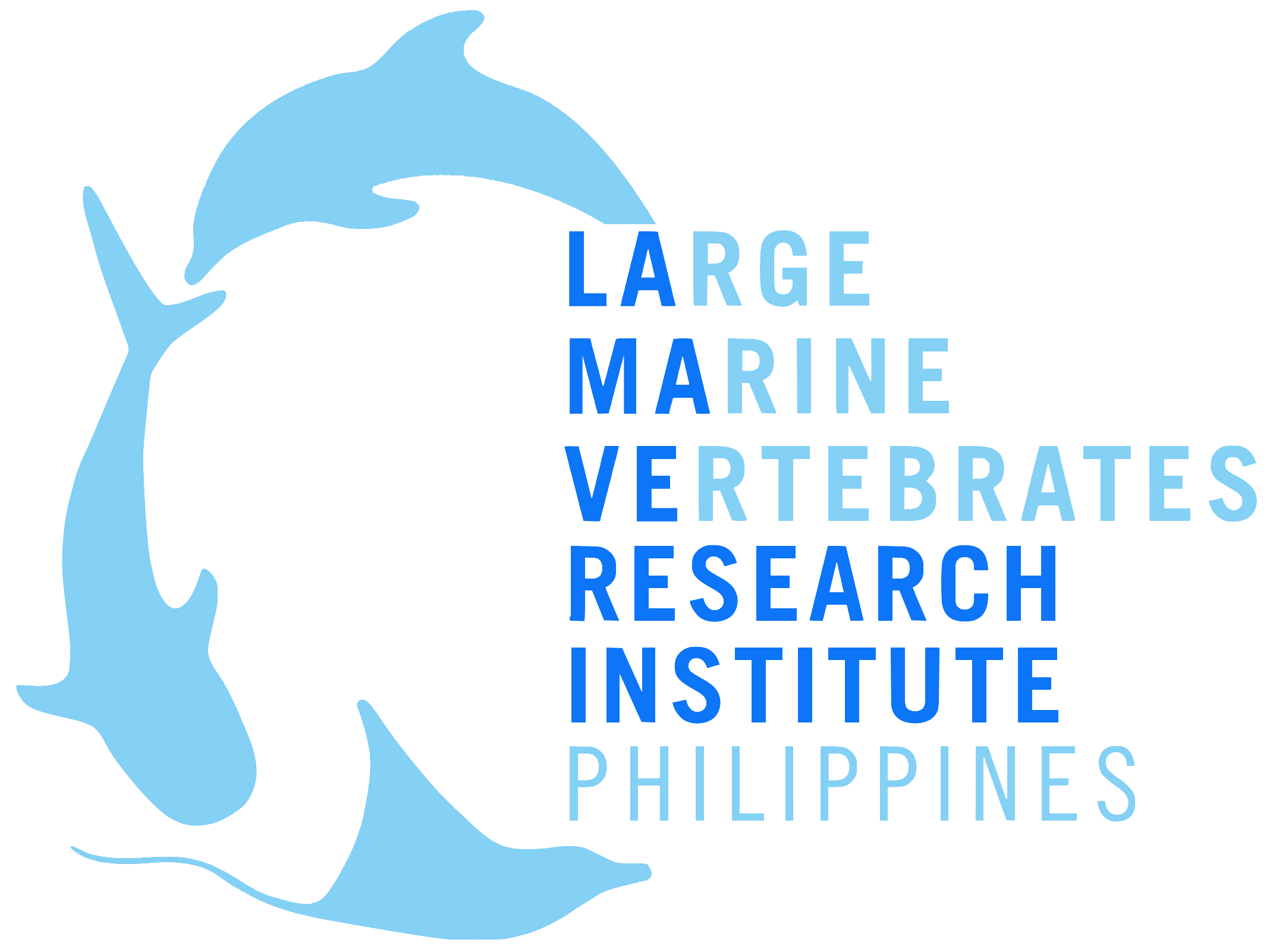Press Release
Hand-feeding of endangered whale sharks in Oslob, Cebu changes diving behaviour and raises concerns over implications to their health
Philippines, 13 October, 2020, A new study published in Scientific Reports finds that resident whale sharks have changed their diving behaviour in response to the hand-feeding activities (provisioning) used to attract the animals in the waters of barangay Tan-Awan, Oslob, Cebu, to allow tourism interaction. The study further investigates how these changes could have implications on the bioenergetics (flow and transformation of energy) of individual whale sharks frequently visiting the mass tourism site.
Researchers from Large Marine Vertebrates Research Institute Philippines and the Southern Shark Ecology Group from Flinders University, Australia, used temperature-depth-recorder (TDR) tags to obtain detailed information on the depth and temperature use of four resident whale sharks in Oslob, Cebu. These resident sharks are individuals that have been encountered in the interaction area in Oslob, where whale sharks are hand-fed (provisioned), for a minimum of 220 days. TDR tags were attached temporarily to the body of the whale sharks to investigate their behaviour when they were present at the provisioning site and when they were not present in the interaction area, as verified through daily photographic identification surveys carried out by the LAMAVE research team in the waters of the interaction area.
Image 1: TDR tags, credit: Sally Snow|LAMAVE; Image 2: A whale shark being hand fed in the waters of Tan-Awan, Oslob, Cebu, credit: Steve De Neef|LAMAVE. Image 3: A TDR tag temporarily fitted to a whale shark, credit: ©LAMAVE
While temperature-depth-recorder tags were only deployed on four sharks, the team collected >80 days of behavioural data with results showing that all four resident whale sharks exhibit a behaviour shift in response to the provisioning, with a consistent pronounced change in water depth and temperature range used. When whale sharks visit the provisioning site, they spent six times longer at the ocean’s surface compared to when they do not visit the tourism site. The shallow waters of brgy Tan-Awan expose the whale sharks to high water temperatures affecting the overall daily average water temperature experienced by the sharks. This finding paired with available science literature, suggests that whale sharks visiting Oslob could undergo a metabolic rate increase of 7.3%, with potentially detrimental fitness (health and welfare) implications for a slow growing, late maturing endangered species like the whale shark.
Figure 1. A randomly selected dive profile from a provisioned (left column) and non-provisioned (right column) day for each of the individual whale sharks fitted with a temperature-depth-recorder tag. The daily provisioning period is identified in red text.
A change in distribution of deep diving behaviour was also detected, whereby sharks visiting Oslob altered the timing of deep dives (>200 m) to later in the day. Whale sharks are ectotherms, which means they are dependent on the temperature of the water column to regulate their body temperature (opposite to humans and marine mammals like dolphins and whales where their body temperature is maintained through actively regulated body activities). The study indicates that this change in behaviour, diving to deeper, colder water could be a need to regulate the body temperature and compensate for a prolonged period of time spent in warmer shallow water at the provisioning site. As a species, whale sharks are deep divers, reaching depths of over 1,900 m so changes to how they use their immediate habitat also affects their role in the wider environment.
The study emphasises that the scale of these behavioural changes is substantial and underline that provisioning activities (feeding of marine wildlife) could have detrimental effects to the physiology and ecology of this endangered species. Management interventions on-site remain an urgent priority to protect this endangered species.
Notes to Editors:
A PDF of this Press Release is available HERE.
The study is available here: https://doi.org/10.1038/s41598-020-73416-2
Please cite as Araujo et al., Changes in diving behaviour and habitat use of provisioned whale sharks: implications for management, Scientific Reports (2020)
For more information or to arrange an interview please contact Sally Snow, email: s.snow[at]lamave.org Photos are available upon request.
The Southern Shark Ecology Group (SSEG) at Flinders University is dedicated to conducting research that directly supports the conservation and management of elasmobranch populations and their ecosystems in the Indo-Pacific and Southern Ocean regions.
Large Marine Vertebrates Research Institute Philippines (LAMAVE) is the largest independent non- profit non-governmental organization dedicated to the conservation of marine megafauna and their habitats in the Philippines. LAMAVE strives for conservation through scientific research, policy and education. For more information visit: www.lamave.org | Facebook | Instagram | Twitter.




